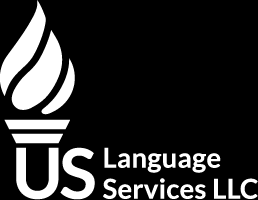Working Abroad as a U.S. Citizen

Most of us have dreamt of working in some foreign locale, maybe firing off a few emails by the pool before heading out each night to explore your exotic new city with the locals. The good news is that this can be a reality, even as a college student or recent grad with limited work experience. As long as you are somewhat flexible in your adventure and read the fine print, finding a job abroad doesn’t have to be an overly arduous or intimidating process. The bad news is that every country has its own work visa requirements, hiring practices, salaries, education requirements, and more, and some of these are very strict and complicated to the point of being prohibitive for young ex-pat workers. That means that extensive research and preparation are required, but overcoming the challenge can lead to one of the most rewarding experiences of a lifetime.
- What’s the first step in finding a job abroad?
- What kind of scams should I look out for?
- Where can I work abroad?
- What kind of job can I get working abroad?
- Do I need to know a foreign language to work abroad?
- Do I need a visa to work abroad?
- What is a digital nomad visa?
- How do I get a visa to work abroad?
- What are these work abroad organizations?
- Where can I get a certified translation?
What’s the first step in finding a job abroad?
Understand that finding work abroad is a complex and time-consuming process. Also know that there are unscrupulous people out there who are ready to take advantage of your unfamiliarity with a country’s hiring processes, its language, etc. Making the digital nomad or ex-pat life happen is not as easy as the YouTube videos make it seem. It can be achieved, but the process is not something to rush into or take lightly.
What kind of scams should I look out for?
An increasing number of scammers have emerged in this niche market to prey on unsuspecting potential travelers. Red flags include jobs offering unrealistically high salaries, a “recruiter” insisting on a foreign deposit to guarantee a job, and vague job descriptions. Learn to weed through all the “Earn €15,000 a month in Prague as an administrative assistant” type postings. These work abroad scams are intended to either steal your money or use your personal and bank information against you.
Where can I work abroad?
This is the fun part – Picture yourself in Europe, South America, Africa, Asia, or anywhere you can dream of. Those are all possible for college students or recent graduates. Some destinations, however, are of course more realistic than others. That does not mean that you have to settle for some backwoods outpost in the middle of nowhere. It just means that you need to be open to a wide variety of destinations, and perhaps think more in terms of regions you want to work in than exact cities.
What kind of job can I get working abroad?
Some of the most popular working abroad jobs are teaching English, working as an au pair, and hospitality work, though there are other less-common options like working on a Disney cruise ship or as an organic farmer.
Do I need to know a foreign language to work abroad?
Many work abroad jobs do not expect or require fluency in the local language, though it will likely help your job chances. Employers do generally like to see an eagerness to learn, however.
Do I need a visa to work abroad?
Yes, and you need to understand each country’s visa requirements before you get too deep into your job search. Some countries like Australia, Ecuador, and Singapore make it relatively easy to get a work visa. In countries like Japan, Lichtenstein, and Russia, however, it is extremely difficult. You can get into most countries on a tourist visa, but are limited to a few months, maybe less, and are not supposed to work. Overstaying this visa (or getting caught working) will lead to fines and even deportation, depending on the country.
What is a digital nomad visa?
A growing number of countries offer special remote work visas for people who already have a job they do online. The requirements of course vary by country, but if you can provide evidence that you are self-employed or hold a job elsewhere, you may qualify for a digital nomad visa in select countries for up to a year or more.
How do I get a visa to work abroad?
This depends on the country, but generally requires official evidence of a job offer and various other documentation, such as educational records, health certification, proof of financial support, and more. Many countries require a certified translation of these documents into the local language.
What are these work abroad organizations?
A growing number of companies serve as a go-between for foreign employers and U.S. citizens looking for work abroad. These organizations have a variety of jobs you can choose from in different countries, and they also help with the visa process, arranging accommodations, etc. Essentially they take a lot of the headaches out of the process, but their services come at a price, and sometimes quite a large one.
Where can I get a certified translation?
Depending on where you are traveling, you might be required to submit certified translations of your original documents during this process. Certified translations can be requested by potential employers or by immigration authorities for visa approval, these document include:
You can order your certified translations from our online store:
Guaranteed Acceptance
All our certified to English translations are accepted by the USCIS. Our translations follow the guidelines established by the USCIS and are also accepted by educational institutions.
Most Requested Documents
FAQs
You can order most translations 24 hours a day, 7 days a week through our online store. For large projects (more than 20,000 words or 50 pages), please request a quote.


